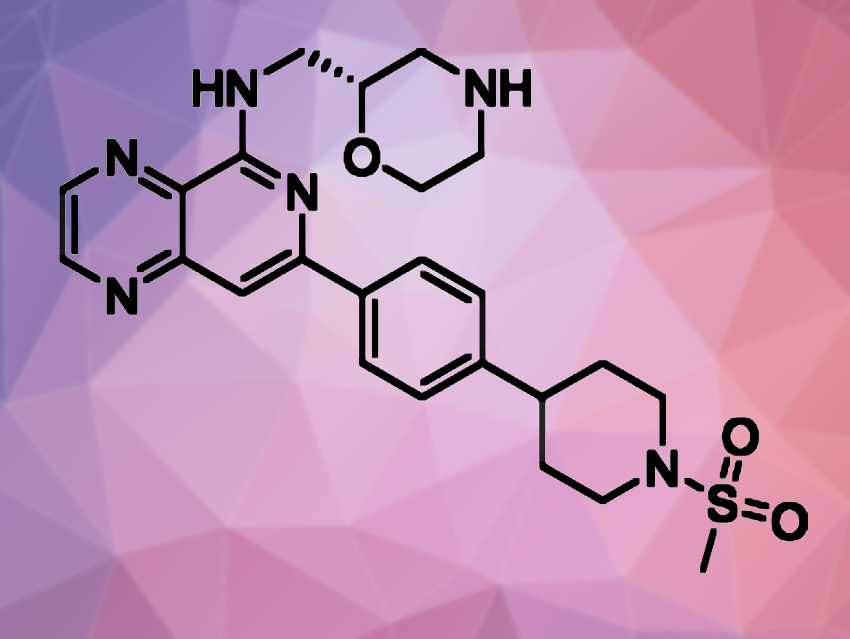Spleen tyrosine kinase (Syk) is an enzyme that is found, e.g., in B cells and T cells (types of white blood cells) and other cells formed from hematopoietic stem cells in the bone marrow. It can be an interesting drug target for autoimmune diseases such as rheumatoid arthritis or cancers such as B-cell lymphomas or leukemia. Potent and selective Syk inhibitors with good pharmacokinetic properties could, thus, be useful for the treatment of such diseases. Existing candidates suffer from drawbacks such as a limited target specificity and a narrow therapeutic window (the range of doses between the effective one and that at which the drug has toxic effects).
Guangxiu Dai, HUTCHMED Limited, Shanghai, China, and colleagues have developed a selective Syk inhibitor, sovleplenib (pictured). The team started from a pyrido[3,4-b]pyrazine scaffold and used a structure–activity relationship (SAR) investigation and pharmacokinetics (PK) optimization to obtain sovleplenib. The researchers varied the substituents in different positions of the starting scaffold and explored the resulting changes in the inhibitory activity. They used enzymatic and cellular assays as as well as theoretical docking studies.
The team optimized the substituents to achieve the highest possible potency and selectivity, while retaining the necessary drug-like properties (e.g., metabolic stability). The drug candidates promising properties were confirmed in an animal model of collagen II-induced arthritis, which is commonly used to study rheumatoid arthritis. Sovleplenib has also shown promise in clinical trials for immune thrombocytopenic purpura (ITP, a blood disorder), warm antibody autoimmune hemolytic anemia (wAIHA), and hematologic cancers.
- Discovery of Sovleplenib, a Selective Inhibitor of Syk in Clinical Development for Autoimmune Diseases and Cancers,
Hong Jia, Wei Deng, Baoyu Hao, Min Cai, Dong Guo, Yu Cai, Xiaoming Dai, Zhipeng Wu, Weigang He, Jian Wang, Guanglin Wang, Sumei Xia, Na Li, Weiguo Su, Guangxiu Dai,
ACS Medicinal Chemistry Letters 2024.
https://doi.org/10.1021/acsmedchemlett.3c00553




